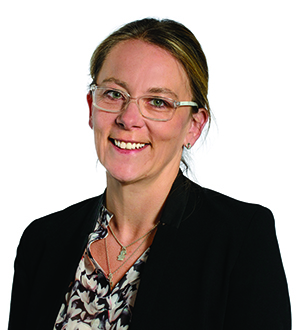International Women’s Day always focusses my mind on our profession, having carved my career in what has very often felt like a male dominated environment, particularly in client advisory roles, it’s a good opportunity to reflect on where we are currently at, writes Sarah Lord, president of the Personal Finance Society (PFS) and chief growth officer at Cooper Parry Wealth.
A Financial Conduct Authority (FCA) research study in 2019 found “gender diversity is low at the industry level overall, with women making up just around 17% of FCA-approved individuals”.
This number is really stark, admittedly it is across the broader financial services profession but nonetheless it demonstrates why, in my opinion there is still a long way to go for us to start to tip the balance away from a male dominated profession.
There are many reasons why, as a profession, we need to continue to address the gender imbalance but for me the two biggest reasons are our clients and our businesses.
Our clients
Data from the Office of National Statistics (ONS) suggests within the next five years, 65% of UK wealth will be controlled by women, yet the FCA estimates of those that take advice only 40% of them are female.
Clearly there is a disconnect and arguably these stats demonstrate there is a specific demographic advice gap, which as a profession we need to continue to take steps to address.
Now I am not saying that women only speak with women when it comes to finances, but there is evidence out there that women do approach their finances in a different way to males and because of this many prefer putting their trust in a female financial planner.
Therefore, to address the needs of female clients, we do need to see more females in advisory roles.
Our businesses
There is plenty of research out there that speaks to the benefits to businesses of having a diverse and inclusive employee population which includes gender balance.
However, I believe this is incredibly pertinent when considering the sustainability of our profession.
A business with a diverse adviser population will appeal to more clients, particularly female clients. This has the potential for greater creativity, improved proposition design to appeal across a broad demographic, which therefore could create more opportunities for businesses.
But also, we need to continue to be open minded of all the benefits that a diverse and inclusive workforce brings to the business and the opportunities that this can create for all involved.
We have seen the balance across the profession marginally shift, however, much of this is down to the hugely significant role paraplanning plays in the advice process with many females having a rewarding career as a paraplanner, rather than a noticeable shift in women fulfilling advisory roles.
Addressing the gender imbalance
Let’s be clear, we have come a long way as a profession with improving the gender balance, but that is not to say there isn’t more that can be done, of course there is.
In some parts of the world, not so much in the UK, the profession still carries the stigma of being a sales, product and transaction-led industry which typically can be far less appealing to potential female recruits.
This misconception needs to be addressed by continuing to speak about the value of advice to clients, the role that fees play in the advice process and what clients typically value these days is long-term working partnership focused on helping them to achieve their lifestyle and financial goals through building financial resilience and financial confidence.

Also, importantly, we need to continue to raise awareness to the next generation of advisers of what a wonderful profession it is; how you can build an awesome career as a financial planner working with great clients to give them confidence in their financial future.
This starts with demonstrating to school age children that it is a career path that is open to them and, on top of that, we need to continue to use the various avenues to get financial planners, such as graduate programmes and apprenticeships.
Return to work and second career programmes also have a role to play. Our profession lends itself well to flexibility in working hours, style and general work life balance; so, compared to some professions, it can be attractive for working mothers.
Speaking personally, I’ve loved every minute of my career in this profession so far and love the fact that we are seeking improved gender balance but would love to see more, we all have a role to play doing our own little bit to encourage greater diversity.
This article was written for International Adviser by Sarah Lord, president of the PFS and chief growth officer at Cooper Parry Wealth.








